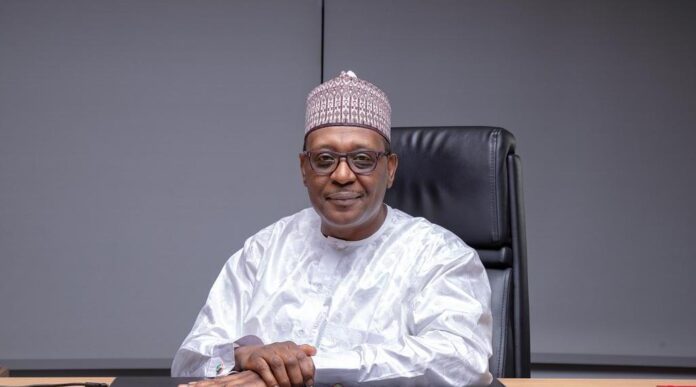The Federal Government has expanded the Basic Healthcare Provision Fund (BHCPF) to over 13,000 Primary Healthcare Centres (PHC) facilities nationwide,
Prof. Muhammad Pate, the Coordinating Minister of Health and Social Welfare, made this known on Wednesday in Abuja, at the 12th Ministerial Oversight Committee (MOC), the Basic Health Care Provision Fund (BHCPF).
Pate said over 80 million visits to the PHCs were recorded in the first half of 2025, representing a fourfold increase compared to 2023.
The minister said the Federal Government also approved the disbursement of N32.9 billion under BHCPF 2.0 to strengthen service delivery and improve staffing, drugs, and operational capacity at PHCs.
He said the number of BHCPF-supported facilities had increased from 8,800 to 13,000, with plans to reach 17,000 by the next phase of implementation.
The minister said over 21 million healthcare visits had been supported through BHCPF, including more than 11,000 emergency cases and 15,000 women reimbursed for obstetric care.
He said Nigeria has recorded a 12 per cent reduction in maternal mortality compared to 2023, alongside a surge in immunisation and insurance coverage for vulnerable populations.
Speaking on the government’s health data reforms, Dr Tomi Coker, Commissioner of Health Ogun State, said the use of national identification numbers now allows real-time verification of service delivery data across communities.
Coker said this reform ensures accountability, transparency, and accurate tracking of health interventions, enabling policymakers to make evidence-based decisions at both the national and state levels.
The Executive Director of the National Primary Health Care Development Agency (NPHCDA), Dr Muyi Aina, commended Nigerians for embracing primary healthcare services and building renewed trust in the public health system.
Aina said over 40 million PHC visits recorded in 2025 demonstrate the growing confidence of citizens in the government’s reforms and the quality of services now available across the country.
He said the utilisation of PHCs had increased threefold compared to non-BHCPF facilities, adding that Nigerians were responding positively to improved service delivery and accessibility.
He said immunisation performance had improved significantly, with the third dose of the pentavalent vaccine rising to 91 per cent coverage, nearly doubling the rate recorded two years ago.
He said more than 90 per cent of children were now being reached in supported facilities, reflecting improved community engagement and health worker performance nationwide.
According to him, the agency is expanding BHCPF-supported PHCs by 5,220 in the next phase, selected in collaboration with states to ensure equitable distribution based on population needs.
He said low-volume PHCs would receive support for up to 600,000 people, while high-volume facilities would cover populations exceeding 800,000 under the new allocation model.
He said that in collaboration with states, the agency had added 247 new functional PHCs in the last quarter, bringing the total to 1,610 under the current work plan.
He said over 500 facilities had been equipped at the national level, while states had provided additional logistics support, cold-chain equipment, and solar power systems to sustain services.
He added that Nigeria had launched the novel malaria vaccine and achieved 96 per cent coverage in pilot states, underscoring the renewed public confidence in immunisation campaigns.
He said the Maternal Mortality Reduction Innovation Initiative had supported over 400,000 beneficiaries, with 100,000 receiving direct services and 30,000 accessing advanced care.
He said this was achieved through collaboration with the National Health Insurance Authority (NHIA), which reimburses providers for services rendered to vulnerable women and children.
The NPHCDA boss said the government had also strengthened the National Emergency Medical Service and Ambulance System (NEMSAS), now operational in over 30 states.
He said more than 11,000 patients were transported under NEMSAS-funded services in the last quarter, including neonatal, obstetric, and other critical emergency cases.
He said over ₦322 million was paid to federal and state hospitals to support patient admissions, with an additional ₦20 million paid to state emergency services.
He said a rural emergency transport system was operational in over 150 local governments, including hard-to-reach and insecurity-affected areas, to improve access to urgent care.
He said Nigerians could now access free emergency medical services by dialling 193, which connects them to ambulance dispatch systems in participating states nationwide.
He added that efforts were ongoing to link emergency hotlines, SMS, and online platforms to enable rapid coordination between hospitals, ambulances, and community responders.
Aina said the ministry plans to work with the private sector to expand emergency service access, leveraging their reach and infrastructure to serve more Nigerians efficiently.
He urged Nigerians to continue trusting the health system, noting that ongoing reforms would further strengthen service delivery and accountability at all levels.
Dr Pavel Ursu, Country Representative to Nigeria, WHO, commended the Federal Government for its data-driven approach and the collaborative model involving states and sub-national health leaders.
Civil society voices also weighed in. Chief Moji Makanjuola, Chair of the Nigeria Universal Health Coverage (UHC) Forum, said CSOs amplify community voices and demand accountability for improved maternal and child survival.
Makanjuola emphasised that citizen engagement is critical in making health a political priority, stressing that communities must be included in decision-making to ensure policies reflect people’s real healthcare needs.
She said the structure of the Ministerial Oversight Committee and its peer-review process had deepened accountability and accelerated progress toward Universal Health Coverage (UHC).
The session ended with renewed commitments from all actors to improve data quality, expand funding, and ensure that Nigeria’s healthcare reforms deliver measurable results nationwide.
The meeting, attended by state health commissioners, donors, and technical partners, resolved to align federal and state digital health initiatives under a single coordination framework, strengthen human resource capacity, and expand emergency response coverage nationwide.




